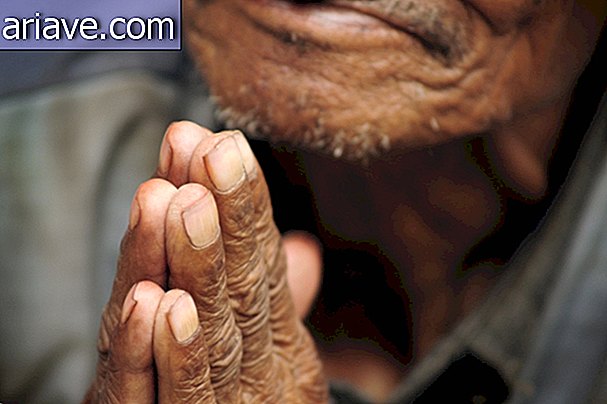Protein: From Diet to Supplement - All You Need to Know
We often hear that we need protein for our bodies to function properly. This molecule does perform important functions in the human body, but do you know exactly how much protein you need to live well?
The truth is that protein has never been so fashionable. Among gymgoers, protein powder supplements are the biggest hit. If the idea is to lose weight, guess what? Protein diets are among the most popular. And if it involves a meat-free lifestyle, the debate revolves around the other sources of protein - are they enough?
Protein, who are you?

Before we talk about quantities and sources, nothing better than understanding what a protein is. Basically, it is a molecule made of amino acids, which are substances that bind together to form a chain - so we can say that a protein is a chain of amino acids. The way these amino acids come together and the length of the chain they form are factors that determine the type of each protein.
Thousands of amino acids have been discovered, but only 22 of them are fundamental to the functioning of the human body - we produce 13 of these amino acids, and the other 9 eventually ingest through food.
Even here it is easier to understand why we should pay attention to what we eat: it is critical that our protein sources are rich in these nine amino acids that our bodies do not produce.

The physiology of the human body is complex and enchanting, so that the functioning of each mechanism, as simple as it may seem, would not be possible without proteins. When we eat, for example, we need enzymes that help us break down food so that our bodies can extract the necessary nutrients - who are these enzymes? Proteins
Insulin, which helps us regulate sugar levels in the body, is also a protein, but known as a "hormone protein." Do you know hemoglobin, which carries oxygen throughout our body through the blood? She is also a protein. Myoglobin, essential for muscle development, is a protein, as are some agents that act on our immune systems, which protect us from infections and other diseases. Not good yet? Know that the health of your hair, nails and bones also depends on good old protein.
Where are you protein?

Among the high protein food items, we highlight several types of meat (chicken, turkey, fish, red meat - just not worth betting on sausages often, huh!), Eggs and milk. For those who do not consume animal products, it is important to maintain a balanced diet with legumes (beans, lentils, peas, chickpeas, soybeans and the like), oilseeds (nuts, walnuts, almonds and seeds), tofu, broccoli. and spinach. In some cases, and always with nutritional advice, the use of supplements is required.
On average, an adult person needs to eat 0.65 g of protein per kg body weight per day. This value, however, depends on the person's health conditions and how often he or she engages in some kind of physical activity.
Lack of protein - a condition known as hypoproteinemia - indicates that a person does not eat the optimal amount of protein through food or that his body for some reason cannot absorb this protein. Lack of nutrient absorption is usually present in those with intestinal diseases or deficiencies.

In some cases, even with a balanced diet and no absorption problems, people lose a lot of protein. The organs that send this substance the most are the kidneys, which act as a sort of sieve to filter our blood - a problem with the filtering mechanism can cause protein molecules to pass through the filter and get lost. Another organ whose performance is directly related to the body's protein level is the liver, so any disease that strikes it can also mean a loss of protein value.
Combined contraceptive use, as well as heart failure, cancer and pregnancy problems are also factors commonly related to low protein storage.
How to tell if you have enough protein

It is always wise to monitor your health and visit your doctor from time to time, especially if there are any complaints related to your health and if you are over 40 years old.
However, you may be aware of some symptoms that may indicate low protein content: swelling and pain in the feet and ankles usually indicate fluid retention, which may be due to kidney disease. Loss of muscle mass, fatigue, cramps, brittle nails can also be indicative of low protein.
In cases of protein deficiency due to liver disease, symptoms may include abdominal bloating and fluid retention in the abdomen as well. To monitor the amount of protein in the body, doctors usually ask the patient to perform blood and urine tests.
And too much protein? Its make bad?

Let's get back to the kidneys, these two bean-shaped organs that perform absurdly complex functions in the human body. As you know, they filter blood, and if your blood is more protein than it should be, it can worsen any existing or undiagnosed kidney problems.
High blood protein concentration has a lot to do with the abuse of protein supplements and protein-prioritizing and carbohydrate-demonizing diets - they are famous diets because they promise rapid weight loss, which may even happen, but with dietary regimen. guaranteed weight and damage to health.
When protein goes through this filtering process, it usually produces urea as waste. The presence of too much protein can mean too much urea in the bloodstream, which leaves the body dehydrated - dehydration in turn overloads all the physiological systems of the human body, which is always a bad business. We should all drink at least 2 liters of water a day, and this caution has to be doubled in people taking protein supplements.
You must also have adequate professional support to use this type of supplement. Moreover, it is always worth remembering that this type of product is a food supplement, ie it does not replace a balanced meal. If the idea is to take care of health, it is really good to do it right and seek help from a nutrition professional and an endocrinologist or general practitioner.
* Posted on 12/22/2015











